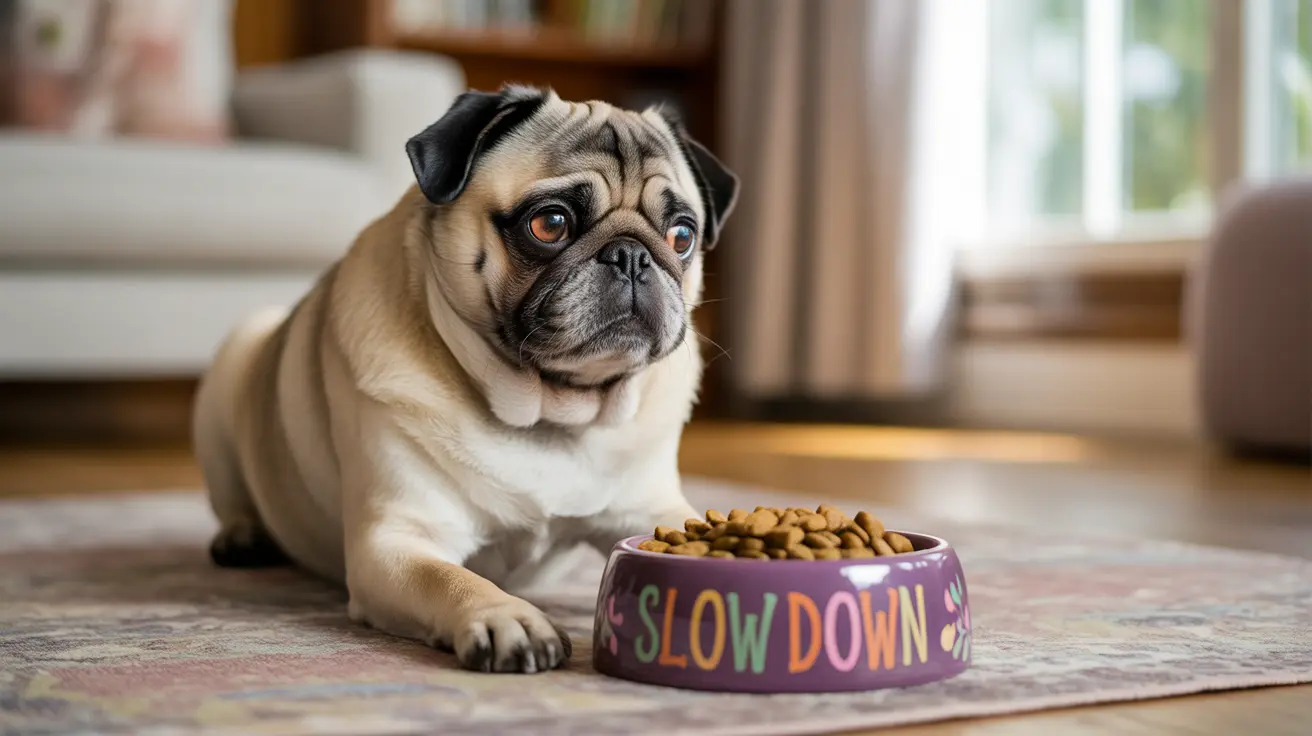Understanding Normal Dog Burping
Just like humans, dogs naturally release excess air through burping during the digestive process. This bodily function helps maintain comfort and proper digestion. Most commonly, dogs burp after eating or drinking, especially if they tend to gulp their food or water quickly.
What many pet owners don't realize is that dog burps are typically quieter than human burps and often go unnoticed unless they become frequent or particularly noticeable.
Common Causes of Excessive Dog Burping
Eating and Drinking Habits
The most common reason for frequent dog burping is aerophagia – the technical term for swallowing too much air. This often occurs when dogs:
- Eat too quickly
- Drink water rapidly
- Gulp air while panting from excitement
- Use poorly designed food bowls that encourage fast eating
Dietary Factors
Your dog's diet can significantly impact their burping frequency. Common dietary triggers include:
- Sudden changes in food
- High-fiber diets
- Foods known to produce gas (like dairy or certain vegetables)
- Food allergies or sensitivities
Breed-Specific Tendencies
Some dog breeds are naturally more prone to burping than others. Brachycephalic breeds (flat-faced dogs) like Pugs, Bulldogs, and Boston Terriers are especially susceptible due to their unique facial structure, which makes them more likely to swallow air while eating.
When to Be Concerned About Dog Burping
While most burping is harmless, certain signs warrant veterinary attention:
- Excessive or sudden increase in burping
- Burping accompanied by vomiting or retching
- Loss of appetite
- Lethargy or depression
- Visible discomfort or bloating
- Changes in bathroom habits
Solutions for Excessive Dog Burping
Feeding Modifications
Simple changes to feeding habits can often reduce burping:
- Use slow-feeder bowls or puzzle feeders
- Feed smaller, more frequent meals
- Ensure proper bowl height for your dog's size
- Keep your dog calm during meal times
Environmental Adjustments
Creating a stress-free environment can help reduce excessive burping:
- Feed your dog in a quiet area
- Maintain consistent feeding times
- Avoid exercise immediately after meals
- Reduce anxiety triggers around mealtimes
Frequently Asked Questions
Why does my dog burp so much after eating or drinking?
Dogs often burp after eating or drinking because they swallow air while consuming food or water, especially if they eat or drink quickly. This is more common in dogs who feel competitive about their food or are very excited at mealtimes.
Can anxiety or stress cause my dog to burp excessively?
Yes, anxiety and stress can lead to increased burping because nervous dogs tend to swallow more air while panting or eating quickly. They may also experience digestive changes that produce more gas.
Are certain dog breeds more prone to frequent burping and why?
Yes, brachycephalic (flat-faced) breeds like Pugs, Bulldogs, and French Bulldogs are more prone to burping due to their facial structure, which makes them more likely to swallow air during normal activities.
When should I be concerned about my dog's burping and see a vet?
Consult a veterinarian if burping is excessive or accompanied by symptoms like vomiting, lethargy, loss of appetite, diarrhea, or visible discomfort. These could indicate underlying health issues requiring medical attention.
How can I reduce my dog's burping through changes in diet and feeding habits?
You can reduce burping by using slow-feeder bowls, feeding smaller portions more frequently, avoiding known gas-producing foods, and ensuring your dog eats in a calm environment. Gradual diet changes and maintaining consistent feeding schedules can also help.
Conclusion
While dog burping is usually normal and harmless, understanding its causes and knowing when to seek veterinary care is crucial for your pet's well-being. By implementing appropriate feeding strategies and maintaining awareness of your dog's digestive patterns, you can help manage excessive burping and ensure your furry friend stays healthy and comfortable.






